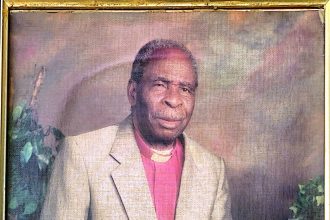
Your husband has been distant lately, his cheer dulled, and you sense the strain before he speaks. One evening, he finally shares the secret battle plaguing his heart: envy. His coworker, a man the same age, just bought a beautiful new sports car and upgraded to a sprawling house in the suburbs. “I can’t stop comparing,” he admits, his voice weighted with shame. “No matter how hard I work, I stand still while everyone races ahead.”
You reach out to reassure him, reminding him of the integrity he brings to his job, the love he provides to his family, and the person you married not for possessions but for his heart. But envy clouds his vision, redirecting his focus from the joy of shared moments to an inventory of what he lacks. He cannot see the richness of the life you’ve built together because his gaze is fixed on someone else’s lane.
Envy creates tunnel vision from what is assumed to be missing in your life while obscuring everything else of value. It’s like losing a diamond ring at the beach — you become so consumed with its absence that the beauty of the ocean, the expanse of the horizon, and the joy of the beach fade into the background.
Psalm 73 deeply analyzes envy and its profound impact on our psychological and spiritual health. It explores the internal struggle of reconciling God’s justice with the apparent prosperity of those without interest in God’s will. Asaph, the author of Psalm 73, was a prominent Levite musician and psalmist during the time of King David. He is mentioned in several passages of the Old Testament, particularly in connection with the organization of worship in the Temple. King David appointed Asaph as one of the chief musicians in leading worship in the Tabernacle (1 Chronicles 6:31-39; 1 Chronicles 16:4-7). Psalm 73 reflects Asaph’s struggles with understanding God’s justice in a world where the wicked prosper.
Asaph begins his complaint: “Truly, God is good to Israel, to those pure in heart. But as for me, my feet had almost stumbled. My steps had nearly slipped. For I was envious of the arrogant when I saw the prosperity of the wicked” (Psalm 73:1–3). Envy begins by missing the rhythm and course of your walk with God. You are out of step and start to stumble. It could be a lack of time spent in prayer, studying His word, or not sharing in fellowship with God’s people. Instead of a steady course, you stagger, tripping over depression, anger, or resentment — all symptoms of envy. Reason is blurred, and your soul becomes “bitter, pricked in heart, brutish and ignorant; like a beast,” roaming away from God (Psalm 73:21–22).
The irony is Asaph believed he had a valid complaint. He had deeper insight and knowledge of God and could see what those who prospered could not. Logically, Asaph should have life’s blessings, not those who did not understand God. The wicked who prospered did not understand what it meant to know and be known by God:
“Therefore, their people turn to them and drink up water in abundance. They say, ‘How would God know? Does the Most High know anything?’”(Psalm 73:10–11).
The wicked pose a subversive and seductive question: “How would God know?” They doubt His omniscience and intimacy with the lives He created. They reason that to know someone requires direct involvement, visible action, and tangible proof. Thus, since God appears absent from their daily grind for prosperity and joy, they conclude, “He does not know.” Their skepticism is so persuasive that others join the chorus, drinking deeply from the wells of perceived abundance and self-sufficiency.
This tore Asaph apart:
“Behold, these are the wicked; always at ease, they increase in riches. All in vain have I kept my heart clean and washed my hands in innocence” (Psalm 73:12–13).
Asaph deeply and passionately believed that God knew every detail of his life — his efforts, sacrifices, and need for guidance and provision. But this truth made the disparity maddening. If God knows, why did Asaph’s life seem untouched by that divine knowledge? To him, it felt like he had labored in futility, keeping his heart pure and his hands unstained, only to watch the wicked thrive while his faith seemed unrewarded. The contrast gnawed at him, shaking the foundation of his trust.
Few experiences are more disheartening than possessing insight without reaping its rewards, while those with little understanding seem to thrive effortlessly. It would be like working for a company where someone who thinks the boss doesn’t know what happens or cares how you make a profit is unscrupulously successful. However, you know everything about the company, follow the rules, and see the boss’s intentions, but your work is never acknowledged, and you don’t reap the same benefits.
Wrestling with the presence of evil and the prosperity of the wicked is an emotional and spiritual burden that weighs heavily on the soul. Asaph captured this struggle when he admitted, “When I tried to understand all this, it troubled me deeply” (Psalm 73:16). Yet his turmoil reached a turning point when he “entered the sanctuary of God” (v. 17). In the presence of the Divine, envy dissolved, replaced by the clarity and peace of a God-centered perspective.
What was the “sanctuary of God?” What was it about this sacred space that untangled the knots of Asaph’s envy? The sanctuary was no mere location but a divine threshold where earthly confusion met heavenly clarity. Before entering, Asaph was no stranger to God — he served in King David’s court, basked in the blessings of being among God’s chosen, and lived a life that should have brought contentment. Yet, something was missing. In the sanctuary, Asaph encountered more than rituals or symbols; he experienced the presence of God Himself. It wasn’t a shift in knowledge but in perspective — where envy crumbled, and the fleeting prosperity of the wicked was exposed.
In the Old Testament, the sanctuary of God refers to the holy place where God’s presence dwelled among His people. It primarily took two forms: the Tabernacle and the Temple. But Asaph’s “sanctuary” experience was not a literal entrance into God’s Tabernacle but a transformation of his heart by God’s presence and wisdom. At the end of the Psalm, Asaph concludes, “But as for me, it is good to be near God; I have made the Lord God my refuge, that I may tell of your works” (v. 28).
Asaph was a renowned Levite musician and servant of King David. As one of the chief musicians in the Tabernacle, he was actively involved in organizing worship. However, this did not prevent his anger, resentment, and frustration over the presence of evil and the prosperity of the wicked. It was only when he “came near to the heart of God” that he found peace.
How did Asaph come near to the heart of God? The answer is in verse 26: “My flesh and heart may fail, but God is the strength of my heart and my portion forever.” Asaph acknowledged that his heart may fail him at times. The human heart wrestles with envy, jealousy, anger, and insecurities. But when God becomes “the strength of the heart,” you enter an inexpressible sanctuary of peace. A refuge where God’s heart of grace and love is the judge, and your heart (though filled with frailties and sin) finds a place of forgiveness and refuge.
The apostle John addressed this same issue of the heart in 1 John 3:19–20:
“This is how we know that we belong to the truth and set our hearts at rest in his presence: If our hearts condemn us, we know that God is greater than our hearts, and he knows everything.”
When we entrust our hearts to God’s judgment, we step into the sanctuary of His presence. In that sacred space, even the weight of envy, jealousy, resentment, and weakness cannot overpower the truth of who He is. God is greater than our hearts, mightier than our frailty, and the savior for our failures. Peace isn’t found in self-cleansing or perfect strength but in the trust that His grace transforms and redeems us, even when our own hearts cannot.
Asaph realized a sobering truth: we dwell in our hearts’ hollow confines and insecurities without God. He declared, “Those who are far from you will perish” (Psalm 73:27). A heart might flourish with wealth and power, yet apart from God, it is empty of the true treasures — His love, His grace, and the eternal blessings that make life whole.
Envy, like many of our human frailties, tempts us to see life through a distorted lens that magnifies what we lack while obscuring the love and grace of God. Asaph’s journey in Psalm 73 reflects how quickly we stumble when comparing our lives to others. Yet, like Asaph, our resolution lies not in acquiring what others have but in recalibrating our perspective in the sanctuary of God. When we allow God to strengthen our hearts, we no longer rely on the fleeting validations of others or worry about how our hearts condemn us. Instead, we live rooted in the tender heart of God, who gave us His only Son. This vision sets us free, eyes fixed not on what we lack but on the abundance of love, grace, and purpose God provides.
Dr. David Zuccolotto is a former pastor and clinical psychologist. For 35 years he has worked for hospitals, addiction treatment centers, outpatient clinics and private practice. He is the author of The Love of God: A 70 Day Journey of Forgiveness.







